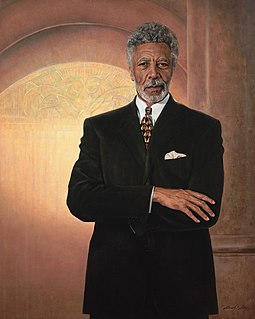A Quote by Bernie Sanders
I believe what Martin Luther King Jr. believed. You remember what the title of the March on Washington was? "Jobs and Freedom." What King understood is that you have to deal with the economic issues as well as the political issues and the civil rights issues.
Related Quotes
I remember back in the 1960s - late '50s, really - reading a comic book called 'Martin Luther King Jr. and the Montgomery Story.' Fourteen pages. It sold for 10 cents. And this little book inspired me to attend non-violence workshops, to study about Gandhi, about Thoreau, to study Martin Luther King, Jr., to study civil disobedience.
Dr. [Martin Luther] King led a very historic march here in Washington, D.C. It was a march for jobs and freedom. It was a march to raise expectations that this country could live up to its ideals. I have watched this debate, this conversation [betwin Hillary Clinton and Donald Trump] about bigotry, about racism, I find it all misplaced.
I still hear people say that I should not be talking about the rights of lesbian and gay people and I should stick to the issue of racial justice. But I hasten to remind them that Martin Luther King Jr. said, 'Injustice anywhere is a threat to justice everywhere.' I appeal to everyone who believes in Martin Luther King Jr.'s dream to make room at the table of brother- and sisterhood for lesbian and gay people.
We have to deal with issues like inequality, we have deal with issues of economic dislocation, we have to deal with peoples fears that their children won't do as well as they have. The more aggressively and effectively we deal with those issues, the less those fears may channel themselves into counter-productive approaches that pit people against each other.

































